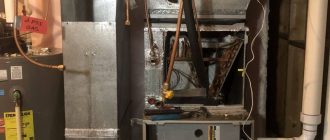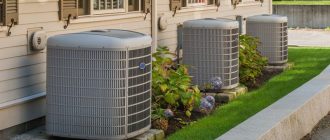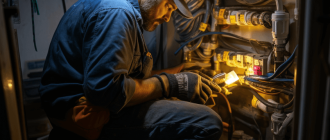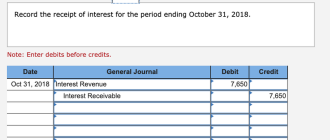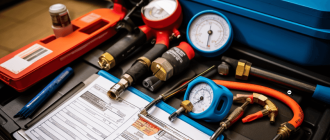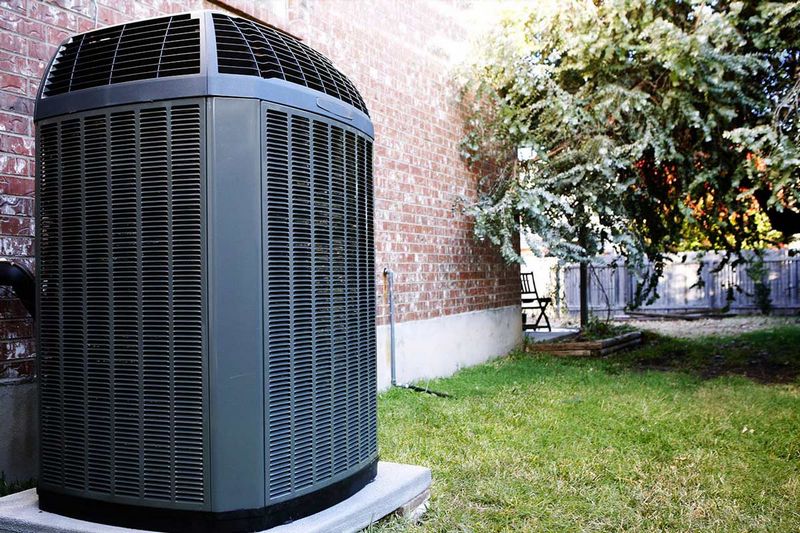
Is your HVAC system causing you to spend more than necessary while sacrificing indoor comfort?
Don’t compromise on your indoor comfort. Make sure you’re not overpaying for your HVAC system.
Indoor comfort shouldn’t come at a high cost.
Are you constantly shivering in the winter or sweating profusely during the summer? Your HVAC system might be to blame.
At ABC HVAC Services, we understand the importance of a comfortable home environment.
That’s why we offer cost-effective solutions tailored to your indoor comfort needs.
Our team of experts will assess your current HVAC system and determine if you’re getting the best performance for your money.
Don’t wait until your energy bills skyrocket. Contact us today to ensure your indoor comfort and save money on your HVAC costs.
The Importance of Indoor Comfort
Indoor comfort is a crucial aspect of our daily lives, as we spend a significant amount of time indoors. Whether it’s in our homes, offices, or public spaces, a comfortable indoor environment contributes to our overall well-being and productivity.
An HVAC system plays a vital role in ensuring indoor comfort. HVAC, which stands for heating, ventilation, and air conditioning, regulates the temperature, humidity, and air quality inside a building. It is responsible for keeping us cool during summer and warm during winter.
However, many people might not realize that they are overpaying for their HVAC systems. Inefficient or outdated HVAC systems can result in higher energy costs and poorer indoor comfort. They might struggle to maintain the desired temperature or fail to adequately circulate clean air.
Investing in a modern, energy-efficient HVAC system can lead to numerous benefits. Firstly, it can help you save on energy costs, as newer systems are designed to be more energy-efficient. By reducing your energy consumption, you can significantly cut down on your monthly utility bills.
Furthermore, a high-quality HVAC system ensures optimal indoor air quality. It filters out pollutants, dust, and allergens, providing a healthier indoor environment for you and your family. Improved air quality can benefit those with respiratory issues, allergies, or sensitivities, promoting better respiratory health.
In addition, a reliable HVAC system can maintain a consistent and comfortable indoor temperature throughout the year. It eliminates hot or cold spots, creating a more pleasant living or working environment. The system’s advanced controls allow you to precisely adjust the temperature and maintain your desired level of comfort.
In conclusion, indoor comfort is an essential element of our everyday lives. By investing in a quality HVAC system and avoiding overpaying for your energy costs, you can enjoy a comfortable and healthy indoor environment year-round. Prioritizing indoor comfort not only enhances your well-being but also contributes to improved productivity and overall quality of life.
Enhancing Productivity
Creating a comfortable indoor environment is not just about avoiding overpaying for your HVAC system. It also has a significant impact on productivity. Studies have shown that employees who work in an optimal indoor temperature range are more focused, motivated, and productive.
When the temperature is too high or too low, employees may find it difficult to concentrate on their tasks. They may feel uncomfortable, sluggish, and easily distracted. This can result in decreased motivation and reduced productivity levels.
On the other hand, a well-regulated indoor temperature promotes a conducive working environment. It helps employees stay alert, engaged, and perform at their best. When individuals feel comfortable, they are more likely to stay on task, make fewer mistakes, and accomplish their goals efficiently.
Investing in a reliable HVAC system that provides the right temperature, humidity, and ventilation is therefore crucial for enhancing productivity. By ensuring employee comfort, businesses can optimize their workforce, improve efficiency, and ultimately achieve better results.
Furthermore, a comfortable indoor environment has a positive impact on customer experiences. When customers visit your establishment, they want to feel comfortable and welcomed. An uncomfortable temperature can create a negative impression and discourage customers from staying or returning. On the other hand, a comfortable and pleasant indoor environment can help create positive experiences and encourage customer loyalty.
Don’t underestimate the importance of a properly functioning HVAC system and the impact it can have on your business. Take the necessary steps to create an indoor environment that enhances productivity and improves customer satisfaction.
Promoting Well-being
Indoor comfort is essential for promoting well-being and creating a healthy living environment. Whether you’re at home or in the office, the temperature and air quality can greatly impact how you feel and perform throughout the day.
By investing in a high-quality HVAC system, you can ensure that you and your loved ones are not overpaying for comfort. A well-functioning HVAC system not only provides optimal indoor temperature control, but also helps to regulate humidity levels and improve air quality, creating a comfortable and healthy living space.
Proper indoor air quality plays a crucial role in preventing respiratory problems, allergies, and other health issues. An efficient HVAC system filters out airborne pollutants, such as dust, pollen, and pet dander, ensuring that you breathe clean and fresh air. This is especially important for individuals with asthma or other respiratory conditions.
A comfortable indoor temperature also promotes well-being by helping you relax, sleep better, and maintain focus and productivity. With a reliable HVAC system, you can easily adjust the temperature to your desired comfort level, ensuring that you have a pleasant and cozy environment throughout the year.
Don’t compromise your well-being by overpaying for your HVAC system. Invest in a high-quality system that provides optimal indoor comfort, air quality, and temperature control. Take care of your health and create a living space where you can feel relaxed, rejuvenated, and ready to take on the day.
Ensuring a Good Night’s Sleep
When it comes to indoor comfort, the importance of a good night’s sleep cannot be overstated. Your HVAC system plays a crucial role in providing the ideal sleeping environment, but it’s important to find the right balance to avoid unnecessary costs.
Costs associated with running your HVAC system can quickly add up, especially if it’s not properly maintained. Regularly servicing your HVAC system can help ensure that it operates efficiently, preventing it from overworking and driving up energy costs.
In addition to maintenance, it’s important to optimize your HVAC settings for a good night’s sleep. Keeping your bedroom at a comfortable temperature can help promote better sleep. According to sleep experts, the ideal temperature for sleep is between 60 and 67 degrees Fahrenheit.
Another factor to consider is humidity. High humidity levels can cause discomfort and make it difficult to sleep. To ensure optimal indoor comfort, consider using a dehumidifier in areas with high humidity. On the other hand, if the air in your bedroom is too dry, using a humidifier can help add moisture and prevent dryness.
Proper insulation is also essential for ensuring a good night’s sleep. Insulating your home can help regulate temperature and prevent drafts, ensuring that your bedroom remains comfortable throughout the night. This can also help reduce the workload on your HVAC system and lower energy costs.
Investing in a programmable thermostat can further enhance your indoor comfort while reducing costs. With a programmable thermostat, you can set different temperatures for different times of the day, allowing you to optimize energy usage when you’re asleep or away from home.
In conclusion, achieving a good night’s sleep is not only about comfort, but also about managing costs. By properly maintaining your HVAC system, optimizing settings, and ensuring proper insulation, you can create a sleep-friendly environment while keeping your energy costs in check.
Providing a Safe and Healthy Environment
At HVAC Company, we know that comfort and indoor air quality are important to you. That’s why we’re dedicated to not only providing efficient HVAC systems, but also ensuring a safe and healthy environment for you and your loved ones.
Indoor air pollution can be a significant concern, especially for those with allergies or asthma. Our HVAC systems are designed to filter out contaminants such as dust, pollen, and allergens, ensuring that the air you breathe is clean and fresh.
In addition to air filtration, we also offer solutions to help control humidity levels in your home. Excess humidity can lead to mold and mildew growth, which can be harmful to your health. Our HVAC systems can help maintain optimal humidity levels, creating a comfortable and safe environment.
Furthermore, our technicians are trained to identify and address any potential safety hazards in your HVAC system. We conduct thorough inspections and maintenance to ensure that your system is operating efficiently and safely, reducing the risk of fires, gas leaks, and other dangers.
When it comes to HVAC, comfort and indoor air quality shouldn’t come at the cost of your health and safety. With our reliable and efficient HVAC systems, you can enjoy a comfortable indoor environment without overpaying.
| 1. Improved air quality |
| 2. Control over humidity levels |
| 3. Reduced safety hazards |
| 4. Energy efficiency |
| 5. Cost savings |
Don’t compromise on your comfort, health, or safety. Contact HVAC Company today to learn more about our HVAC systems and how we can provide a safe and healthy indoor environment for you and your family.
Understanding HVAC Costs
When it comes to indoor comfort, a crucial aspect that often gets overlooked is the cost associated with running your HVAC system. Many homeowners find themselves overpaying for their HVAC, without even realizing it. Understanding HVAC costs is essential to ensure you’re getting the most out of your system without breaking the bank.
There are several factors that contribute to HVAC costs, including the size of your home, the insulation levels, and the efficiency of your system. If your HVAC system is outdated or inefficient, you may be spending more on energy bills than necessary.
Regular maintenance is another key factor in minimizing HVAC costs. By scheduling routine maintenance checks, you can identify any potential issues early on and prevent them from escalating into costly repairs. Additionally, a well-maintained system operates more efficiently and can save you money in the long run.
Investing in energy-efficient HVAC systems is another effective way to reduce costs. While these systems might have a higher upfront cost, they consume less energy and can result in significant savings over time. Considering the long-term benefits, the initial investment is worth it.
Proper usage of your HVAC system can also impact your costs. Making sure to adjust the temperature when you’re away or asleep can help save energy and reduce costs. Utilizing programmable thermostats and zoning systems allows you to customize your HVAC usage according to your needs, optimizing comfort while minimizing expenses.
Understanding HVAC costs is an essential part of being a responsible homeowner. By taking steps to improve efficiency, invest in energy-saving systems, and schedule regular maintenance, you can enjoy indoor comfort without overpaying on your HVAC expenditures.
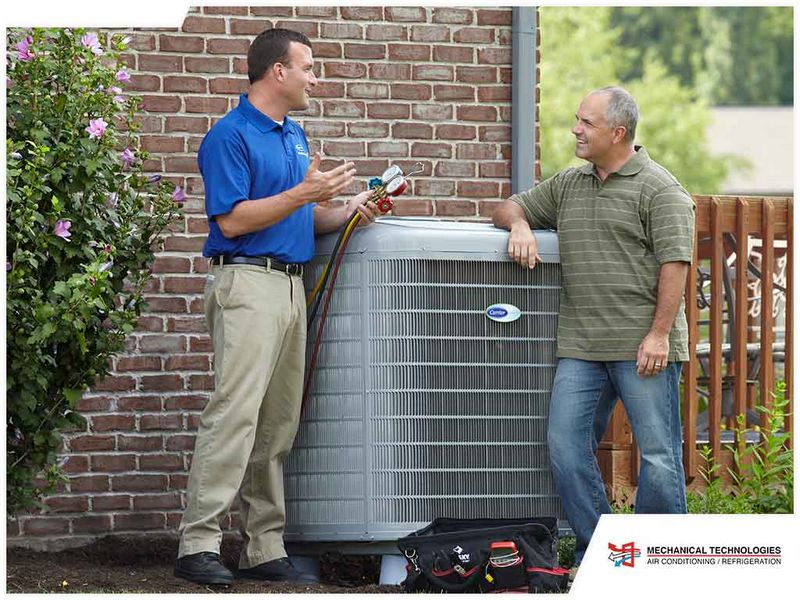
Energy Consumption
One of the key factors to consider when it comes to indoor comfort is energy consumption. Many people often overlook the impact that their HVAC system has on their overall energy costs. By not paying attention to energy consumption, you could be unknowingly overpaying for your indoor comfort.
When your HVAC system is not running efficiently, it can result in higher energy usage and skyrocketing costs. This can be especially true if your system is outdated or in need of maintenance. Regular maintenance can help ensure that your system is running at peak efficiency, saving you money in the long run.
An energy-efficient HVAC system not only helps you save on costs, but it also provides better comfort indoors. It ensures consistent temperatures throughout your home or office, making it more enjoyable to live or work in. With proper insulation and well-maintained ductwork, you can maximize energy efficiency and minimize energy loss, which directly impacts your energy bills.
Investing in energy-efficient HVAC equipment is a smart choice for both your comfort and your wallet. Look for systems with high seasonal energy efficiency ratios (SEER) and energy star ratings. These ratings indicate that the equipment has met strict energy efficiency standards and can provide optimal comfort while reducing your energy costs.
To further improve your energy consumption and savings, consider implementing smart temperature control systems. These systems allow you to easily regulate and program the temperature settings in your home or office, ensuring that your HVAC system is only running as needed.
Remember, energy consumption and comfort go hand in hand. By investing in an energy-efficient HVAC system and staying attentive to maintenance, you can achieve optimal comfort without overpaying for it.
Maintenance and Repairs
Regular maintenance and repairs are crucial for maintaining the comfort and efficiency of your HVAC system. By neglecting these essential tasks, you run the risk of overpaying for your HVAC costs and compromising the indoor comfort of your home or business.
Maintenance:
Regular maintenance, such as cleaning and replacing air filters, can significantly improve the performance of your HVAC system. Clogged filters can restrict airflow and cause the system to work harder, resulting in higher energy costs. Regular maintenance also involves inspecting and cleaning the various components of the system, including coils, fans, and ducts, to ensure they are functioning optimally.
Repairs:
Even with regular maintenance, HVAC systems may require repairs from time to time. Ignoring signs of trouble, such as strange noises, unpleasant odors, or inconsistent temperature control, can lead to more significant problems and costly repairs down the line. It is essential to address these issues promptly to maintain indoor comfort and prevent further damage.
When repairs are necessary, it is crucial to hire a qualified HVAC technician. Attempting to fix complex HVAC issues yourself or hiring inexperienced individuals can lead to costly mistakes and potentially dangerous situations. A qualified technician will diagnose and resolve the problem efficiently, ensuring that your HVAC system operates at its best.
Remember, proper maintenance and timely repairs not only prevent overpaying for HVAC costs but also prolong the lifespan of your system, ensuring comfortable indoor spaces year-round.
Upfront Installation Costs
When it comes to indoor comfort, having a well-functioning HVAC system is essential. However, many homeowners may find themselves overpaying for their HVAC installation, both in terms of upfront costs and long-term energy consumption.
Upfront installation costs can vary depending on several factors. The size of your home, the type and brand of HVAC system you choose, and the complexity of the installation all play a role in determining the cost. It’s important to carefully consider these factors to ensure you are getting the best value for your money.
Choosing the right HVAC system is crucial for achieving optimal comfort while keeping costs in check. An oversized or undersized HVAC system can lead to inefficiencies and higher energy bills. That’s why it’s important to work with a reputable HVAC professional who can assess your needs and recommend the right system for your home.
Don’t fall into the trap of overpaying for your indoor comfort. Take the time to research and compare HVAC installation costs from different providers. Look for transparency and quality in both products and services offered. By doing so, you can ensure you are getting the best HVAC system at the best price, providing you with comfort and energy efficiency for years to come.
Efficiency Ratings
When it comes to HVAC systems, efficiency ratings play a crucial role in balancing costs and indoor comfort. By understanding and considering these ratings, you can avoid overpaying for your heating and cooling needs.
Efficiency ratings, represented by specific ratios, indicate how effectively your HVAC system converts energy into desired indoor comfort. The higher the rating, the more energy-efficient and cost-effective the system is.
SEER (Seasonal Energy Efficiency Ratio): This rating measures an air conditioner’s cooling efficiency over an entire cooling season. A higher SEER rating means higher energy efficiency and potential cost savings.
EER (Energy Efficiency Ratio): Unlike SEER, EER measures an air conditioner’s cooling efficiency at a specific outdoor temperature. This rating helps determine the system’s performance in extreme temperature conditions.
HSPF (Heating Seasonal Performance Factor): HSPF is the rating used to measure a heat pump’s heating efficiency. Higher HSPF ratings indicate better energy efficiency and cost savings during the heating season.
AFUE (Annual Fuel Utilization Efficiency): This rating is specific to furnaces and indicates how efficiently they convert fuel into heat. The higher the AFUE rating, the more efficient and cost-effective the furnace is.
Understanding these efficiency ratings can help you make informed decisions about your HVAC system. By selecting a system with higher ratings, you can maximize indoor comfort while minimizing costs. Consult with HVAC professionals to determine the best system for your needs and budget.
Factors Affecting HVAC Costs
When it comes to HVAC (heating, ventilation, and air conditioning) costs, there are several factors that can directly impact the amount you might be overpaying or the level of indoor comfort you’re experiencing. Understanding these factors can help you make more informed decisions about your HVAC system and save money in the long run.
The size and efficiency of your HVAC system are important considerations. An HVAC system that is too small for your space will have to work harder and longer to maintain the desired temperature, leading to higher energy consumption and increased costs. On the other hand, an oversized HVAC system may cycle on and off more frequently, which can also result in unnecessary energy usage and higher bills.
The insulation and sealing of your home or building can significantly impact HVAC costs. Poor insulation or air leaks can lead to thermal inefficiencies, causing your HVAC system to work harder to maintain a comfortable indoor temperature. By investing in proper insulation and sealing, you can reduce the strain on your HVAC system and potentially lower your energy bills.
The climate and location also play a role in HVAC costs. Extreme temperatures, whether hot or cold, require your HVAC system to work harder to maintain the desired indoor comfort level. Additionally, areas with high humidity may require additional HVAC equipment or dehumidification systems to maintain ideal indoor conditions.
Regular maintenance and proper usage of your HVAC system are crucial for maximizing efficiency and minimizing costs. Neglecting maintenance tasks, such as cleaning filters or checking refrigerant levels, can lead to decreased efficiency and increased energy consumption. Similarly, using your HVAC system excessively or setting it at extreme temperatures can result in unnecessary costs.
Lastly, the type and quality of HVAC equipment you have can affect costs. Energy-efficient HVAC systems may have a higher upfront cost but can provide significant savings in the long run through reduced energy consumption. Investing in reliable and well-known HVAC brands can also ensure durability and fewer repair costs over time.
By considering these factors and making informed decisions about your HVAC system, you can achieve optimal indoor comfort while minimizing costs. If you suspect that you might be overpaying for your HVAC, consulting with a professional HVAC technician can help identify any issues and provide recommendations for improvement.
Climate and Weather Conditions
When it comes to indoor comfort, one factor that plays a significant role is the climate and weather conditions outside. The climate in your area can greatly impact how efficiently your HVAC system operates and how much you end up paying for it.
In regions with extreme temperatures, such as hot summers or freezing winters, the demand for heating and cooling increases. This means that HVAC systems have to work harder to maintain a comfortable indoor temperature, leading to higher energy consumption and ultimately higher costs.
On the other hand, areas with moderate climates may require less heating or cooling throughout the year, resulting in lower energy usage and costs. However, it’s essential to note that even in moderate climates, there can still be fluctuations in temperature and weather conditions that can affect indoor comfort.
Additionally, factors such as humidity levels and air quality can also impact indoor comfort. High humidity can make a space feel stuffy and uncomfortable, while poor air quality can lead to health issues. HVAC systems that are designed to address these factors can help optimize indoor comfort and reduce the risk of overpaying for unnecessary energy usage.
By understanding the climate and weather conditions in your area and investing in the appropriate HVAC system, you can strike a balance between comfort and costs. Taking preventive measures, such as proper insulation and regular maintenance, can also contribute to energy efficiency and cost savings.
Remember, achieving indoor comfort doesn’t mean you have to overpay for your HVAC system. With the right knowledge and choices, you can create a comfortable indoor environment without breaking the bank.
Size and Insulation of the Space
When it comes to indoor comfort and HVAC systems, the size and insulation of the space play a significant role in determining your comfort and how much you might be overpaying. Whether it’s a residential or commercial space, understanding the importance of the right size and insulation can save you money while ensuring optimal comfort.
The size of the space affects the HVAC system’s efficiency and performance. If the space is too large for the HVAC system, it will struggle to cool or heat the area adequately. Conversely, if the space is too small, the HVAC system may end up running more frequently, leading to higher energy bills and potential overpaying.
Insulation is another critical factor in indoor comfort and cost savings. Insufficient insulation can result in energy leakage, forcing your HVAC system to work harder to maintain the desired temperature. This can lead to excessive energy consumption and higher utility bills.
Proper insulation helps create a barrier against heat transfer, keeping the indoor temperature stable and reducing the workload on your HVAC system. By investing in insulation improvements, you can effectively control the temperature in your space and avoid overpaying for heating or cooling.
In summary, considering the size and insulation of your space is essential for achieving ideal indoor comfort and avoiding unnecessary costs associated with overpaying for your HVAC system’s operation. To maximize your comfort and minimize your expenses, consult with HVAC professionals who can assess your space and recommend appropriate solutions based on your specific needs.
Frequency of Use
When it comes to indoor comfort and costs, the frequency of use of your HVAC system plays a significant role. If you constantly adjust the temperature in your home to achieve optimal comfort, your HVAC system is likely working harder and consuming more energy, leading to higher costs. On the other hand, if you rarely use your HVAC system or maintain a consistent temperature, you might be wasting energy and paying unnecessary costs.
It’s important to find a balance that suits your needs without overpaying. By understanding how often you rely on your HVAC system, you can make informed decisions about its usage and potentially reduce your energy consumption and costs.
Regular maintenance is crucial to ensure the efficiency and longevity of your HVAC system, especially if you frequently use it. Keeping your system clean and well-maintained can help it operate at optimal levels, reducing the amount of energy it consumes and ultimately saving you money.
Consider implementing energy-saving practices to further optimize your HVAC system’s usage:
- Use a programmable thermostat to set different temperatures during different times of the day, adjusting to your lifestyle and preferences.
- Keep windows and doors closed when your HVAC system is running to prevent energy loss.
- Seal any air leaks in your home to maintain a consistent temperature and reduce the strain on your HVAC system.
- Utilize natural ventilation when appropriate, opening windows to circulate fresh air and reduce reliance on your HVAC system.
By monitoring and managing the frequency of use, you can strike a balance between indoor comfort and costs, ensuring that you neither overpay nor sacrifice your desired level of comfort.
Age and Condition of the HVAC System
When it comes to indoor comfort and the costs associated with your HVAC system, the age and condition of the system are essential factors to consider. An older HVAC system may struggle to provide the level of comfort you desire, while also causing an increase in energy costs due to inefficiency.
Over time, HVAC systems can become less effective at controlling indoor temperatures and maintaining a comfortable environment. This can be attributed to wear and tear, accumulation of dirt and debris, and outdated technology. Additionally, older systems may require more frequent repairs, leading to additional expenses.
Regular maintenance is key to keeping your HVAC system in optimal condition. However, even with proper maintenance, there comes a point when the efficiency and performance of the system begin to decline. In such cases, it may be more cost-effective to invest in a new HVAC system rather than continue to pay for repairs and higher energy bills.
Modern HVAC systems are designed to provide greater energy efficiency, improved indoor air quality, and enhanced comfort. By upgrading to a newer system, you can enjoy more precise temperature control, reduced noise levels, and even potentially qualify for energy-saving incentives or rebates. Investing in a new HVAC system can provide long-term savings and improved indoor comfort, making it worth considering if your current system is outdated.
In conclusion, the age and condition of your HVAC system can significantly impact your indoor comfort and costs. If you find yourself overpaying for your HVAC system due to inefficiency or frequent repairs, it may be time to evaluate the age and condition of your system. Upgrading to a newer, more efficient HVAC system can help optimize comfort while potentially saving you money in the long run.
Q&A:
What is HVAC?
HVAC stands for Heating, Ventilation, and Air Conditioning. It refers to the system that controls the indoor environment—temperature, humidity, and air quality.
How does HVAC impact indoor comfort?
HVAC plays a crucial role in maintaining indoor comfort. It can control the temperature to ensure a comfortable living or working environment. It also helps regulate humidity levels and improves air quality, keeping the space fresh and healthy.
How do I know if I am overpaying for my HVAC?
If you notice a significant increase in your energy bills without any major changes in your usage or if your HVAC system is constantly in need of repairs, it might be a sign that you are overpaying. Additionally, if your HVAC system is outdated and inefficient, it could be costing you more money in the long run.
What are some cost-effective ways to improve HVAC efficiency?
There are several cost-effective ways to improve HVAC efficiency. One is to regularly maintain and clean your system to ensure it is running at its optimal level. Another is to upgrade to a programmable thermostat that can automatically adjust the temperature based on your schedule. Additionally, sealing any air leaks in your home and improving insulation can help reduce energy waste and improve efficiency.

